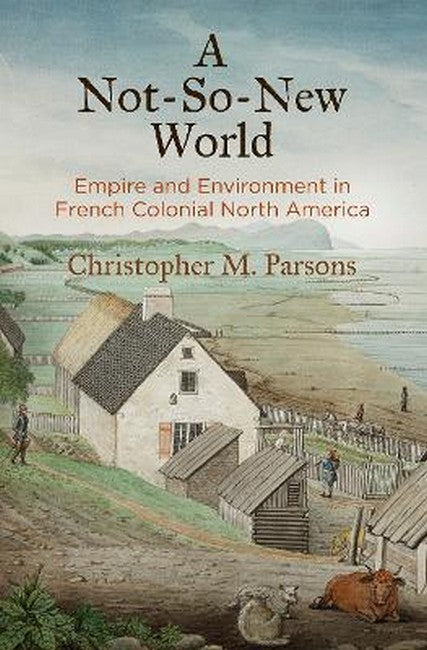Christopher M. Parsons teaches history at Northeastern University.
Request Academic Copy
Please copy the ISBN for submitting review copy form
Description
Introduction. The View from Champlain's Gardens Chapter 1. Discovering a Not-So-New World Chapter 2. Communicating Cultivation Chapter 3. Cultivating Soils and Souls Chapter 4. The Limits of Cultivation Chapter 5. The Science of Novelty Chapter 6. How New Was New France? Conclusion. Cultivating New Relationships Notes Index Acknowledgments
"Parsons's work can serve as a model for other historians interested in the environmental aspects of colonialism, particularly those seeking to work at the intersection of environmental history and the history of science." (Environmental History) "This is field-leading scholarship for those thinking through the environmental early modern and through histories of imperial knowledge." (French Studies) "[A] call to action that makes important interventions, not only into the history of science, environmental history, and the history of global knowledge exchange, but also into contemporary debates surrounding the entanglements of environment and politics. The book is richly researched and will no doubt become standard reading for anyone interested in the exigency of indigenous ecological knowledge or the importance of environment for the justification, implementation, and practice of European colonization in the early modern period." (Agricultural History Review) "[Parson's] thorough examination of colonial science and literature reveals how agroecosystems and representations of plants reflected and influenced French attitudes toward nonhuman nature, Native peoples, and the French imperial project...By historicizing anthropogenic assumptions, Parsons recovers how environmental interdependence once formed and cultivated political ecologies." (H-Environment) "The book's originality and strength lie in the fact that it does not simply describe the ways in which the colonists appropriated the New World's vegetation: On the contrary, it sets out to understand the role of transatlantic movements in defining an environmental culture that valued empirical observation and knowledge of non-European environments...[A]n important contribution. " (History: Review of New Books) "Christopher M. Parsons tells a new and highly original story about how various people involved in the French colonization of North America understood the landscape of the New World and how these changing understandings affected and shaped the larger project of seventeenth- and eighteenth-century French colonialism." (Robert Morrissey, University of Illinois Urbana-Champaign) "Christopher M. Parsons's detailed account of the exchange of botanical information between New France and its metropolis sheds new light on the development of environmental knowledge about the colony, understood in an appropriately broad geographical framework." (Colin Coates, York University) "Re-examining the texts of French settlers and missionaries in what's now Canada, Parsons challenges our assumptions about the environmental history of North America, and charts new routes toward a global history of early modern science." (Nicholas Dew, McGill University)

